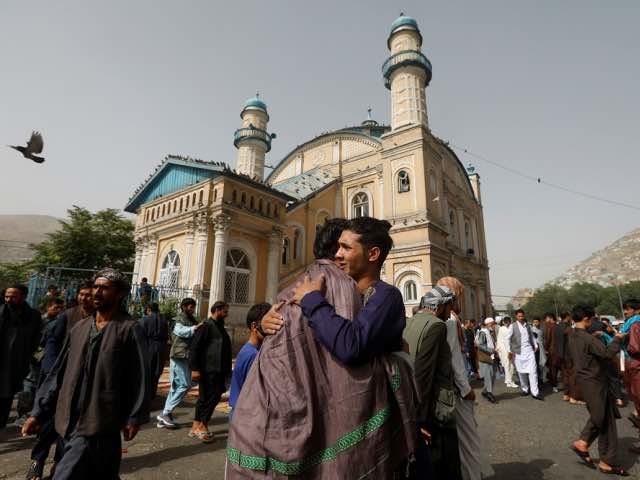Afghan-owned peace process only solution to war in Afghanistan

America’s top military commander in Afghanistan, John Nicholson sent regional observers into a tizzy with his comments on Monday that the United States was ready to join direct negotiations with the Taliban. He later retracted his statement, apparently under pressure, saying his words were“mischaracterized.”
So what does the U.S. actually want in Afghanistan? Is it in favor of direct talks with the Taliban or does it want the process to be Afghan-led and Afghan-owned? Is Trump franticallylooking for an escape route from the 17-year-old war that has been a complete disaster or he wants to inflict more misery on the poor, hapless, and war-weary Afghans?
Just a few days ago, on an unannounced trip to Kabul, the U.S. Secretary of State Mike Pompeo said the Trump administration was prepared to “support, facilitate and participate” in peace talks between the Afghan government and the Taliban.However, he hastened to add that the process will be Afghan-led.
Did the position of U.S. on Afghan peace process change so dramatically in less than a week or was Nicholson simply not aware of it when his tongue apparently slipped? “Our secretary of state, Mr. Pompeo, has said that we, the United States, are ready to talk to the Taliban and discuss the role of international forces,” he said during a visit to southern province of Kandahar.
Taliban, who refuse to recognize the legitimacy of government in Kabul, have always insisted on holding direct deliberations with Washington. And Washington has insisted that the Afghan government should directly engage with the Taliban. Nicholson’s statement, which he said was ‘mischaracterized’,marks a significant shift in the U.S. policy in Afghanistan. It shows respect to the Taliban leadership and disrespect to the elected government in Kabul.
As expected, a spokesperson for Taliban’s political office in Qatar was in a celebratory mood. “This is what we wanted and were waiting for – to sit with the U.S. directly and discuss the withdrawal of foreign troops from Afghanistan” he was quoting saying. The group has repeatedly demanded lifting of travel embargo on Taliban leaders by UN and unconditional withdrawal of foreign forces from Afghanistan. So will the U.S.-led coalition concede to the demand that foreign forces must withdraw from the battle-scarred country?
Afghan President Ashraf Ghani, who has faced blistering criticism at home and abroad for failing to contain violence, has been desperately wooing the Taliban to join Afghan-led and Afghan-owned talks. A breakthrough was expected when the two parties observed an unprecedented three-day ceasefire on the festival of Eid this year. But, all hopes were dashed when the insurgent group refused to extend the ceasefire and went back to the frontlines of war.
Ghani, however, has not given up. On Monday, in an interview with RFE/RL, he dismissed the Taliban’s rejection of his offer of peace talks, suggesting that the insurgent group can still be persuaded to come to the negotiating table. “It’s like when you ask someone’s hand in marriage and the family of the bride says no several times [before relenting],” said the economist-turned-president, sounding clearly over-optimistic. He strongly favors talks that are Afghan-led and Afghan-owned.
The government in Kabul, which depends heavily on the funding from its international partners, has been rendered weak and inefficient. Critics believe that the Ashraf Ghani government, which was formed as a result of power-sharing dealbrokered by then U.S. Secretary of State John Kerry in 2014, does not take its own decisions. A shadow of Washington hangs overhead.
So, although Nicholson has retracted his statement, if the U.S. actually plans to hold direct talks with the Taliban, the legitimacy of the Ashraf Ghani-led government in Kabul, which is already under fire, will be further eroded. The general sense in Afghanistan is that the peace process should be Afghan-led and Afghan-owned. Americans cannot talk to the Taliban on behalf of the people of Afghanistan.
Why Afghans cannot trust Americans is pretty clear. America has never been the well-wisher of Afghanistan. It invaded Afghanistan in 2001 not to overthrow the Taliban regime and bring peace to the war-torn country, but it basically sought to neutralize the masterminds of 9-11 attack, who the hawks in Washington believed were hiding in the mountains of Afghanistan. Then, on the pretext of ‘war against terrorism’, Americans turned Afghanistan into another Iraq, another killing field, another failed experiment. And the innocent blood continues to flow in the streets of Afghanistan.
Today, after 17 years of war and trillions of dollars, the government in Kabul controls 229 of Afghanistan’s 407 districts, and the Taliban controls and yields influence in 59. The remaining 119 districts are contested, according the Office of the Special Inspector General for Afghanistan Reconstruction (SIGAR). This is the legacy of America and its allies in Afghanistan.
But, importantly, the involvement of America in Afghanistan did not begin in 2001. They fought against Russians in Afghanistan in 1980s and played a key role in the birth of the Taliban. Most of the top-notch Taliban and Al Qaeda leaders were on the payroll of CIA before the tables turned.
Since 2001, Americans have been fighting against the same ‘warriors’ they once patronized. They did same in Iraq, supporting Saddam Hussain in all his horrendous war crimes and eventually getting him killed. They did exactly the same to Osama Bin Laden, who was once a close ally of CIA in Afghanistan.
So, the idea of America-led direct talks with the Taliban inspires no hope. The devil cannot be trusted. For the final political settlement, the peace process has to be Afghan-led and Afghan-owned and important regional players like India, Pakistan, Iran, Russia and China must be roped in. Otherwise, it is an exercise in futility.
